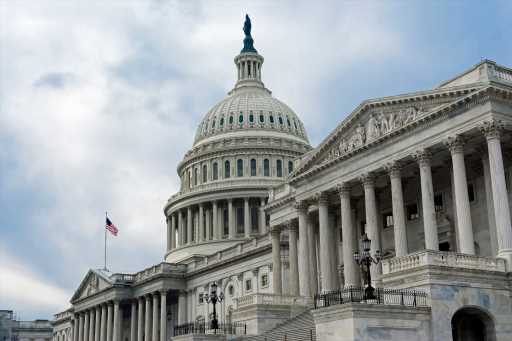A long-in-the-works bill to allow news publishers and broadcast stations to jointly negotiate with tech giants for their content was left out of a massive defense spending bill, diminishing its prospects for passage by the end of this Congress.
The Journalism Competition and Preservation Act would create a “safe harbor” from antitrust laws for a period of eight years for newspapers, broadcast stations and digital journalism outlets. The legislation has been proposed multiple times in recent years, but so far has failed to move forward. It is intended to boost local news outlets, which have withered in the face of online competition.
Related Story
Sen. Amy Klobuchar Confirms Congressional Antitrust Hearing In Wake Of Ticketmaster's Taylor Swift Fiasco – Update
But the tech industry has amped up its opposition against the legislation. As efforts were underway to include the bill in a massive defense spending bill this week, Facebook on Monday released a statement in which it said that it would be “forced to consider removing news from our platform altogether” rather than “submit to government mandated negotiations that unfairly disregard any value we provide to news outlets through increased traffic and subscriptions.” Other tech groups also oppose the legislation.
The text of the House version of the National Defense Authorization Act, released on Tuesday night, did not include the legislation.
Reintroduced in August, the journalism bill was designed to address the decline of local news outlets, whether print or broadcast stations. It included limits on the size of news outlets that can collectively negotiate, prohibiting news outlets with more than 1,500 full-time employees. It would have required so-called “gatekeeper platforms” — i.e., Google and Facebook — to negotiate in “good faith” with the news organizations. The platforms are defined as those with at least 50 million U.S.-based users or subscribers, or those owned or controlled by entities with a market cap of greater than $550 billion or at least 1 billion monthly active users worldwide.
Facebook argued that the government would be creating a “cartel-like entity which requires one private company to subsidize other private entities” that would be a “terrible precedent for all American businesses.”
Yet the legislation garnered a substantial list of sponsors, including Rep. David Cicilline (D-RI), Rep. Ken Buck (R-CO) and Rep. Jerry Nadler (D-NY) in the House and Sen. Amy Klobuchar (D-MN), Sen. John Kennedy (R-LA) and Sen. Dick Durbin (D-IL) in the Senate.
The News/Media Alliance, representing publishers, said in a statement earlier this week that Facebook’s threat was “undemocratic and unbecoming.”
“As the tech platforms compensate news publishers around the world, it demonstrates there is a demand and economic value for news,” the group said. “These threats were attempted before the Australian government passed a similar law to compensate news outlets, played out unsuccessfully, and ultimately news publishers were paid.”
Must Read Stories
James Cameron Intros Epic At London World Premiere; Red Carpet Gallery; More
‘Abbott Elementary’, ‘Better Call Saul’ Lead TV Noms; Full List & Analysis
Bill Cosby & NBCUniversal Hit With Sexual Assault Suit From Ex-‘Cosby Show’ Actresses & Others
Christine McCarthy Emerges As Top Contender To Succeed Bob Iger As CEO
Read More About:
Source: Read Full Article



